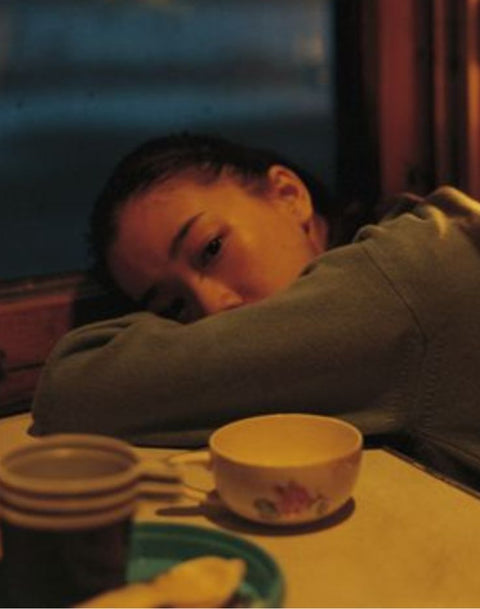
You may have been hearing about Winnicott's theories on TikTok recently, but what actually are they? We explore Donal Winnicot's most influential theories and how they may have impacted your attachment style.
Who is Donald Winnicott?
Donald Winnicott was a British psychoanalyst and pediatrician who made pioneering contributions to the fields of psychoanalysis and child development. Born in 1896, he was instrumental in shifting the focus of psychoanalytic thought from merely treating pathological conditions to understanding the nuances of everyday life and the complexities of the human psyche.
He was also a prolific writer and left a legacy of work that includes influential theories on the parent-child relationship, the development of the self, and the emotional world of the child.
Although Winnicott passed away in 1971, his work continues to have a significant influence on psychology, psychotherapy, and developmental studies today.
What Are Winnicott's Theories?
The Good Enough Mother
Winnicott introduced the idea of the "Good Enough Mother," a term that suggests that caregivers don't need to be perfect but rather adequately responsive to a child's needs.
By emphasizing that "good enough" care is sufficient, Winnicott offers a more attainable and humane model of parenting.
This notion liberates caregivers from the burden of perfectionism, allowing them to make inevitable mistakes without fearing long-term detrimental effects on the child's development.
Moreover, the concept validates the idea that it's the overall emotional climate created by the caregiver—rather than individual, isolated actions—that significantly impacts the child's ability to develop a secure sense of self and engage constructively with their surroundings.
Holding Environment
The concept of a 'holding environment' is also central to Winnicott’s work.
In the "holding environment," the caregiver acts as a sort of emotional buffer, modulating the child’s experiences so they are neither too overwhelming nor too understimulating.
This fine balance allows the child to test their emotional boundaries in a secure setting, fostering a sense of confidence and agency.
Additionally, the holding environment is crucial in forming the foundational trust that enables the child to venture into more complex social interactions and relationships later in life.
In this environment, the child learns not just to survive, but to thrive—equipped with the emotional skills and resilience required for a well-adjusted adulthood.
True and False Self
Winnicott also explored the dichotomy between the 'true' and 'false' self.
When a caregiver is genuinely attuned to a child's needs, the child learns that it is safe to be authentic, thereby nourishing the development of the true self.
On the flip side, if a child is frequently required to conform to external expectations without space for genuine emotional expression, the false self becomes more pronounced, functioning almost like a survival mechanism.
This could eventually result in a life where one is disconnected from their own desires and emotions, making it challenging to form authentic connections with others. The relationship between the true and false self is not a rigid dichotomy but a fluid continuum, where the optimal balance lies in the ability to adapt and express oneself in a way that honors both inner authenticity and external social commitments.
Transitional Objects
Absolutely. Transitional objects serve as more than just inanimate items of comfort; they are symbols of stability that the child imbues with emotional significance.
These objects allow the child to experience a sense of control and comfort, particularly when navigating new or challenging situations where the caregiver isn't present.
Moreover, the transitional object plays a pivotal role in the child's capacity for adaptation and psychological flexibility. It assists the child in gradually internalizing the feeling of security provided by the caregiver, thereby equipping them with the emotional tools they need to manage separations and the ensuing emotional demands.
Over time, as the child matures and gains a more robust emotional repertoire, the importance of the transitional object may diminish, but the emotional resilience and adaptability it helped to cultivate remain as enduring psychological assets.
Potential Space
The concept of "potential space" serves as a testament to the human capacity for imaginative thought, and it’s where you can engage with abstract ideas, symbols, and cultural practices.
This space provides the fertile ground for not only individual creativity but also for the meaningful relationships and emotional bonds that come from shared cultural and imaginative experiences.
Additionally, the potential space is a critical arena for emotional and intellectual growth. As you mature, this space expands and diversifies, enriched by your experiences and relationships. It becomes a platform where you can reconcile personal identity with collective culture, allowing for a more nuanced understanding of your own place in the broader world.
It's in this space that the lines between the subjective inner world and the objective external reality blur, creating a unique blend of personal and collective experiences that contribute to a holistic sense of self.
Final Thoughts
Donald Winnicott's theories provide a multifaceted lens through which to understand human emotional and psychological development. His concepts—ranging from the "Good Enough Mother" and "holding environment" to the "true and false self," "transitional objects," and "potential space"—capture the complex interplay between an individual and their environment.
His work emphasizes the foundational importance of early caregiving experiences, without losing sight of the individual's ongoing dynamic engagement with the world. What makes his theories especially compelling is their enduring applicability, not just in clinical psychology and child development, but also in the realms of education, social work, and even everyday interpersonal relationships.
His nuanced understanding of the human psyche offers invaluable tools for nurturing a healthy, authentic self while navigating the complexities of our social and emotional landscapes.



